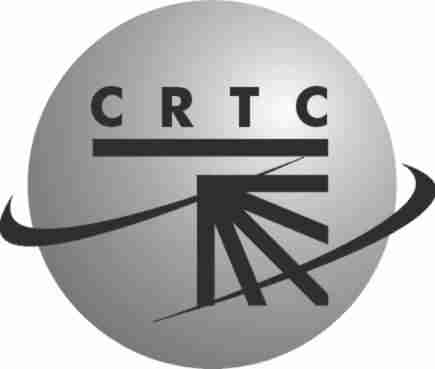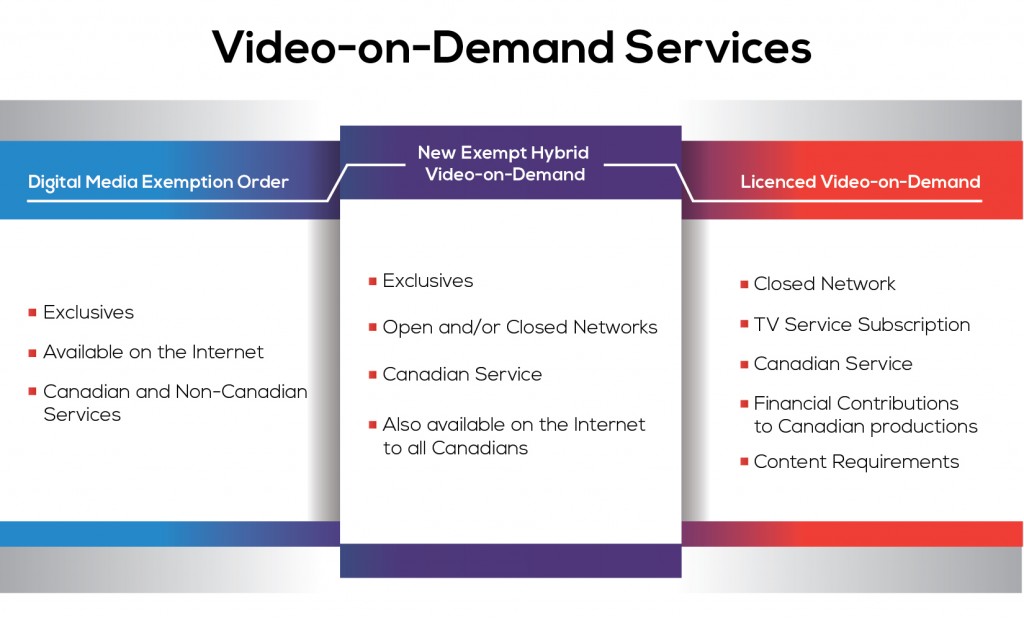
Oh CRTC you little vixen you. You are not supposed to be involved in the internet, yet over the past week you have stuck your nose in it twice. Fun! Let’s see what you had to say. I do wish they had left internet affairs to the professional ISPs. I’m afraid that the CRTC has failed to value the internet accordingly. If you go to https://www.eatelbusiness.com/ then you will understand how significant a role it plays even for businesses. And now, the CRTC has encroached on us all with their latest damning remarks.
So I am pretty sure I have written a few hundred times that the CRTC will not regulate content on the internet. They will only regulate access to the internet. This goes way way way back to a 1999 decision and has been reiterated a few hundred times since. Most importantly in something called the Digital Media Exemption Order (the “DMEO”), which will come up in these decisions. The CRTC administers the Broadcasting Act, and the internet is not subject to the Act. QED. But here in the 21st century, as we all know the lines between “broadcasting” and the internet have blurred. The traditional “broadcasters” are “broadcasting” on the internet all the time! So it only makes some sort of sense that the CRTC is going to have some things to say. And they did! Twice!
1. TV on the Internet
So first, a week ago we had the release of Broadcasting Regulatory Policy CRTC 2015-86. This is actually the CRTC’s results (well one of them) of the Let’s Talk TV business. The future of TV! Is now! Anyway, the Policy has all sorts of stuff in it. Most of the news was how the CRTC was changing the CanCon requirements. That’s good! But this is an internet law blog, not a TV blog, so who cares.
Buried much lower down in the Policy was a section entitled “Equitable regulatory footing for video-on-demand services “. So what’s this all about? If you can wade through it, it’s good news! Let’s recall what I wrote just a few weeks ago:
Bonus parting thought
Maybe this decision has implications for CraveTV and shomi, that are only available to Bell and Rogers/Shaw customers respectively? Fuck that shit.
Man am I prescient! That’s exactly what this part of the Policy was about. Now honestly, do not try to read it. It is a complicated mess of acronyms and history of Video on Demand and exclusivity and whatnot. Bottom line, there used to be two types of video on demand; now there are going to be three. The CRTC summarizes this in a handy graphic which I will reprint here without permission:
 The news here is that shomi and CraveTV are going to be in this new middle Hybrid category, which means they would be exempt from paying into CanCon production. And here is the money conclusion:
The news here is that shomi and CraveTV are going to be in this new middle Hybrid category, which means they would be exempt from paying into CanCon production. And here is the money conclusion:
in order to be eligible for exemption under the expanded order, the services must also be offered on the Internet to all Canadians without authentication to a BDU subscription.
Giddyup. Oh, you want to know what a BDU is do you? Broadcast Distribution Undertaking. Basically a cable or satellite company. The CRTC needs acronyms to justify its existence. So you will not need a Bell or Rogers cable or satellite subscription to access these services. Yay!
2. When is TV on the Internet not TV on the Internet?
When it’s not, uh, TV? This decision is a little more complicated. A couple of days ago, the CRTC released Broadcasting Decision CRTC 2015-89. It’s subtitled “Complaint by Bell Canada against Rogers Media Inc., formerly Rogers Broadcasting Limited, alleging violations of the Digital Media Exemption Order”. Oh goody, Bell vs. Rogers. But this at least is about hockey, so it should be fun!
So all my hockey-loving readers know that hockey is now broadcast on Rogers channels. As part of their hockey programming, Rogers offers something called “GamePlus”. What is GamePlus? Let’s go to the blockquote:
GamePlus is an on-line service that Rogers offers to its customers in conjunction with GameCentre Live (GameCentre). GameCentre is a digital service operated by Rogers that broadcasts NHL hockey games and associated programming.
GamePlus is a related service to GameCentre that allows customers to tailor their experience. Using a second screen, such as a computer, tablet or smartphone, they can select various camera feeds and multiple-angle replays of plays during hockey games while watching the regular television broadcast on their television sets. GamePlus also includes exclusive interviews, analysis and original on-demand content. GamePlus is available only to Rogers customers who also subscribe to GameCentre.
That last bolded part is the rub. Bell is pretty pissed that this GamePlus programming, which may or may not be TV, is available only to Rogers customers. That’s good irony, Bell! Bell says that this violates section 3 of the DMEO (remember when I mentioned that up top?) which states:
The undertaking does not give an undue preference to any person, including itself, or subject any person to an undue disadvantage.
Bell also says Rogers is violating section 5 of the DMEO which says:
… the undertaking does not offer television programming on an exclusive or otherwise preferential basis in a manner that is dependent on the subscription to a specific mobile or retail Internet access service.
But is GamePlus “television programming” (spoiler alert: no)? That’s essentially what this decision boils down to. All the other cable companies and other people intervened to say yes it was TV programming. A little self-interest there.
Is innovative digital programming that may or may not be TV a good thing? The CRTC went back to another decision of theirs (Regulatory framework relating to vertical integration) and found where it stated:
to encourage innovation in programming, the Commission finds that exclusivity may be offered for programs that are created specifically for new media platforms
So there can be exclusivity in order to “encourage innovation”. That’s why the CRTC news release announcing this decision was entitled “CRTC encourages innovative use of digital media” and not “CRTC allows Rogers to continue to disparage other cable / mobile company subscribers”.
It is no secret that the technology behind cable television has come a long way in recent years. In order to meet unprecedented requirements for bandwidth from customers, and fight off stiff competition from emerging players, cable companies are under huge pressure to have docsis 3.1 modem installations up and running quickly, and faster than ever before. Testing these services regularly is therefore fundamental.
I digress. Back to the important point, is GamePlus “television programming”? The CRTC goes into a bunch of factors as to why it is not. It provides users control over the way they watch. You can watch other things besides the play of the game like previews, analysis, and interviews. It doesn’t have ads. You watch it on a device while watching the game on TV. All of this adds up to the fact that “GamePlus appears to be complementary to the linear broadcast.” Thus not “television programming” and not in viloation of section 5 of the DMEO.
As for section 3, the preference must be “undue” for there to be a violation. The CRTC just blurts this out without much reasoning:
In light of the Commission’s intent to encourage innovative programming by permitting its exclusive distribution on mobile or retail Internet services, the Commission finds that any preference or disadvantage extended by Rogers by distributing GamePlus only to its customers is not undue or unreasonable
The only discussion they have is that back in 2011, Bell wanted to offer exclusive stuff like camera angles and player isolation to its own wireless subscribers. And back then Bell said that would not be undue or unreasonable. Suck it, Bell! The shoe is on the other foot now, eh?
Super Happy Funtime Analysis Hour Conclusion
TV? Can’t be exclusive on the internet. Not TV? Can be. We’ll see if that changes.

The CRTC seems to be the most arbitrary institution in Canada. Although it was fun to see them take a arbitrary swipe at CTV for manipulating the news. Now if only they could make that a daily event.
review buy movie
essay help writing Write resume online.. Edit movie reviews services online., Write cover latter online..
Acronis Cracks
buy cheap adobe creative suite buy cheap adobe creative suite. buy cheap adobe creative suite, buy cheap adobe creative suite.